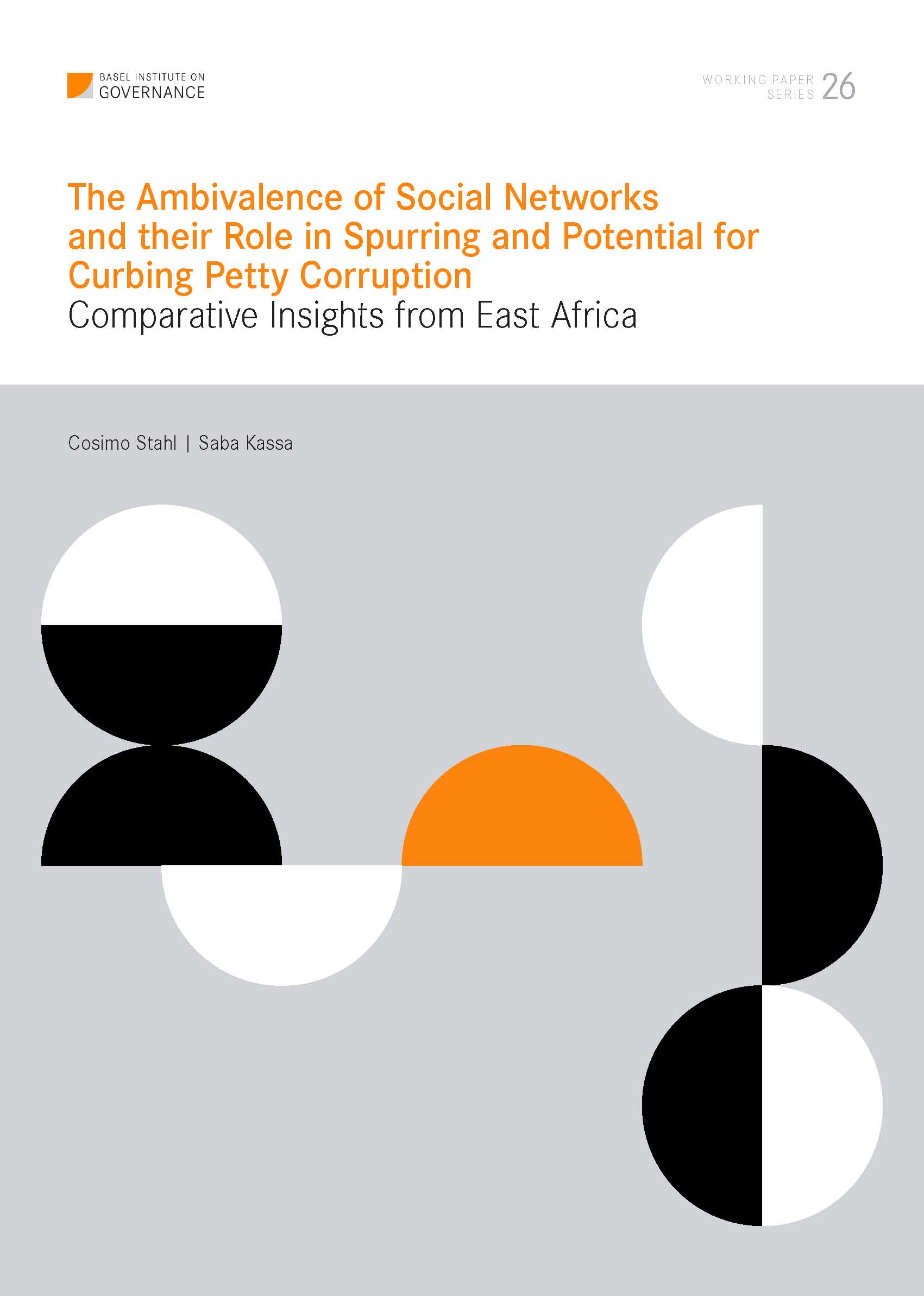Working Paper 26: The ambivalence of social networks and their role in spurring and potential for curbing petty corruption: comparative insights from East Africa
Keywords:
social networks, anti-corruption research, corruption, bribery, petty corruption, behavioural insightsAbstract
This paper compares social network dynamics and related petty corrupt practices in East Africa. It highlights how the properties of structural and functional networks could serve as entry points for anti-corruption interventions.
With a focus on the health sector in Rwanda, Tanzania and Uganda, the empirical findings from this research corroborate the role of social networks in perpetuating collective practices of petty corruption, including bribery, favouritism and gift-giving.
The paper makes a case for designing a novel type of behavioural anti-corruption intervention, whereby the power of social networks is harnessed to elicit behavioural and attitudinal change for anti-corruption outcomes.

Downloads
Published
How to Cite
Issue
Section
License
Copyright (c) 2018 Basel Institute on Governance Working Papers

This work is licensed under a Creative Commons Attribution-NonCommercial-NoDerivatives 4.0 International License.

